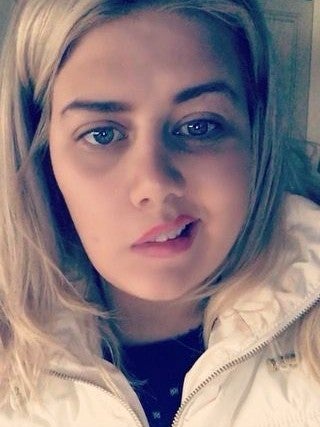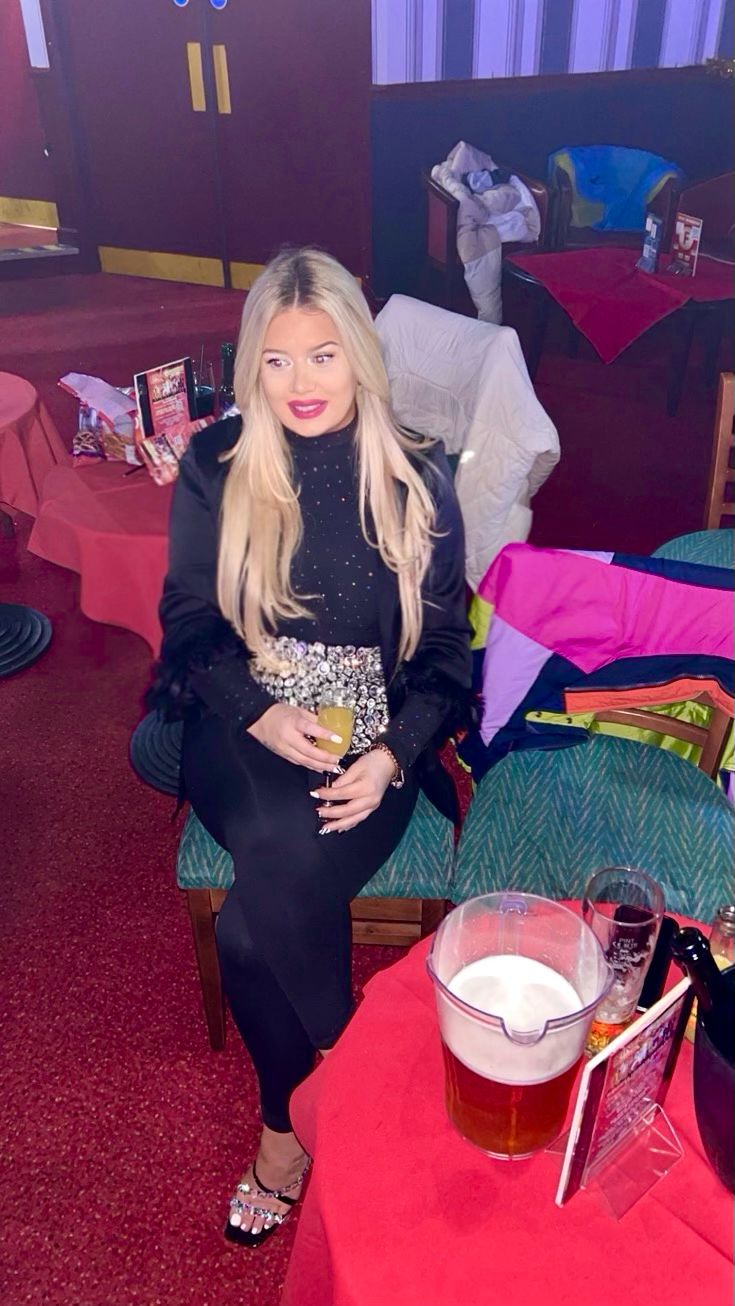
Will I die today? Woman living with brain aneurysms that could kill her any time
A woman with several brain aneurysms which could rupture at any time has said she can’t stop thinking: “Am I going to die today?”
Amber Ford, 31, from South Lanarkshire, Scotland, described herself as a “healthy” individual before she became unwell in 2018.
She was first diagnosed with mumps and Bell’s palsy six years ago after waking up one morning to find her face was “all twisted”. Ms Ford said her health “hasn’t been right” since.
In 2020, she started experiencing concerning symptoms such as extreme fatigue, bad headaches, disturbances to her vision and waking up “choking” on her own vomit.
After raising these issues with a GP and a hospital, both of which she did not wish to name because of ongoing treatment in their care, the former customer service worker felt she was not being taken seriously.
On one occasion she was told she may need “psychiatric treatment”.
Through her work’s private healthcare, Ms Ford was able to seek a CT scan on her neck after initially thinking she may have throat cancer, but it instead revealed a “shadow” in her brain.
An MRI scan in April 2024 revealed up to three aneurysms in her brain – but a procedure to investigate further could cause serious complications, such as a stroke.
Ms Ford is now faced with the prospect of a risky surgery to cut off blood supply to the aneurysms which could cause a haemorrhage, leave her permanently disabled, or dead, or she could “do nothing” knowing they could rupture at any time.
She has recently found a US doctor specialising in complex and rare aneurysm cases such as hers, prompting her to launch a GoFundMe page in the hope she can raise enough money to travel for treatment.
“I’m basically living in unbearable anxiety every day thinking ‘are they going to rupture today?’ and ‘am I going to die today?’,” she told PA Real Life.
“If I get the surgery, there’s a chance I could have a stroke, a haemorrhage, I could be left permanently disabled or dead.
“If they did rupture and I survived, it could mean I might never walk again, I might be blind, I might never speak.
“I feel like I’m a prisoner in this situation and it seems no matter what option I choose, the outcome just isn’t good.”
Ms Ford described herself as a “healthy” individual when, in 2018, she was diagnosed with mumps and Bell’s palsy, a condition causing temporary weakness often to one side of the face.
“I woke up one day and my face was all twisted,” she said.

“Since then, things haven’t been right – my bloods have been off, I’m always catching infections, things like that.”
Towards the end of 2020, Amber said she started to experience several concerning symptoms.
“I was falling asleep at work, I was falling asleep standing up,” she said.
“I started having bad headaches to the point I couldn’t lift my head and the light in the room was too much.
“I was being sick in my sleep and I was waking up choking, I couldn’t breathe.”
She also experienced “disturbances” to her vision, loss of function in her legs while laughing and “out-of-character” changes to her behaviour.
Ms Ford raised her symptoms with a GP and a hospital, but she felt as though she was not being taken seriously.
“I knew there was something wrong with me for a long time but I was being told that I was bringing these issues on myself or I needed psychiatric treatment,” Amber said.
She said she was “convinced” she had throat cancer because of the sickness she was experiencing, and she also noticed some “swelling” in her neck.
Accessing private healthcare through her former job, she had a CT on her neck in December 2023.
She said while this did not reveal any signs of a tumour, it did show a “shadow” in her head which was thought to be an aneurysm.
Ms Ford was referred for another scan, where a neurosurgeon suggested she could have something in her brain called a fenestration, where a single artery is split into two.

She then had an MRI scan in April 2024 which revealed both the fenestration and potentially up to three aneurysms in her brain.
Unfortunately, the condition may run in Ms Ford’s family – her grandmother, Isobel O’Neill, died at the age of 56 from a brain aneurysm.
She said there is “no way of knowing” the extent of her condition without undergoing an angiography, a type of X-ray where a thin tube is inserted into an artery – but she said there is a risk she could have a stroke with the procedure.
She also said the fenestration in her brain is “not dangerous” but because her aneurysms are situated on this artery, her condition has become all the more rare and risky.
She is now faced with two options – an operation to place a metal coil on the artery to cut off blood supply to the aneurysms, which comes with great risks, or “do nothing”.
“This has completely taken over my whole life … I don’t even leave the house because I start having panic attacks,” she said.
Ms Ford said she has found an American doctor who deals with complex aneurysm cases and who worked with patients with similar conditions to hers, saying they have agreed to look further into her case.
She launched a GoFundMe page for help in the eventuality she can proceed with a consultation and treatment as she currently does not have the funds to go.
“I genuinely just want my life back, I want to have a family and enjoy my life,” she said.
To find out more, visit Amber’s GoFundMe page here.










